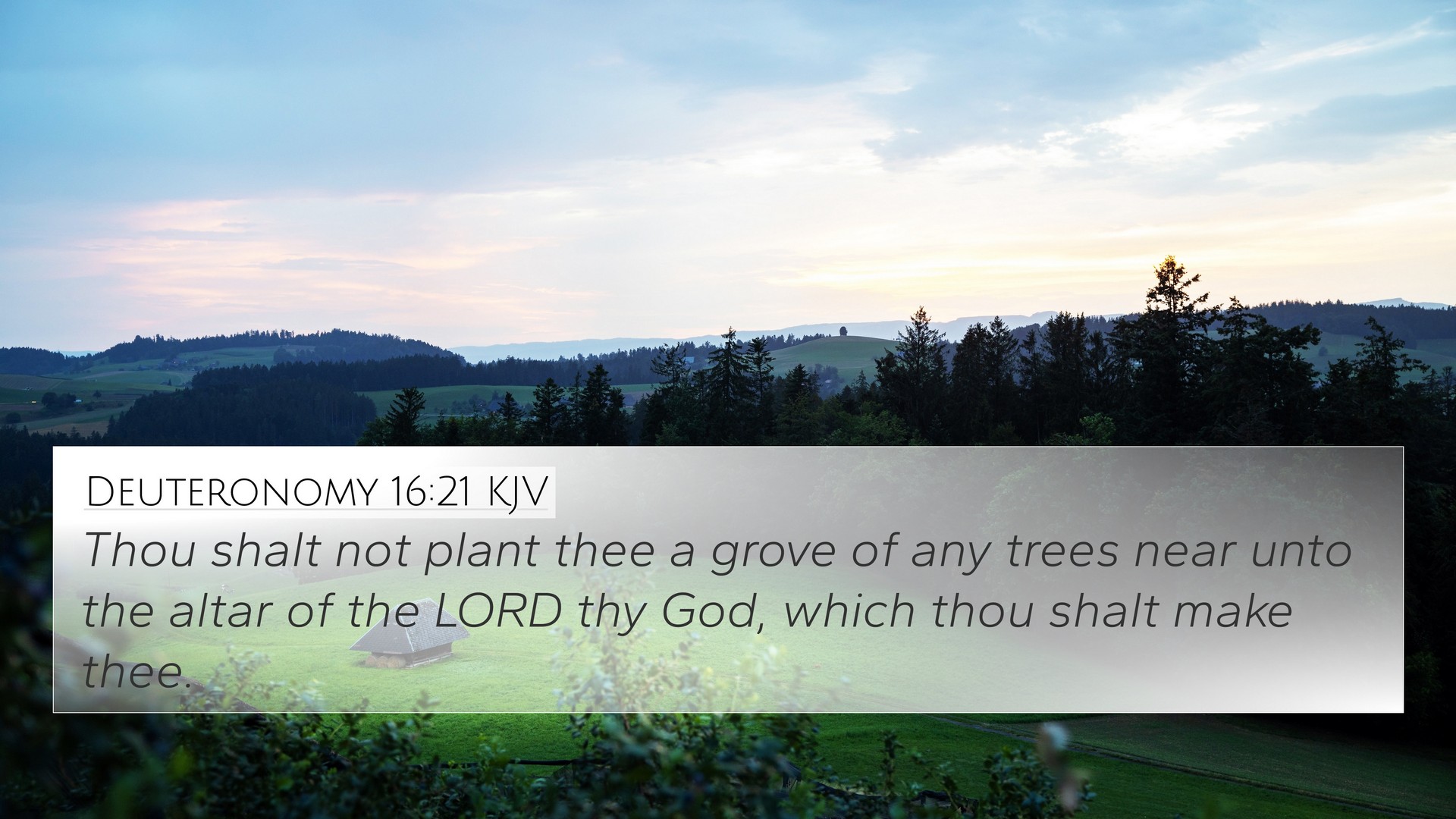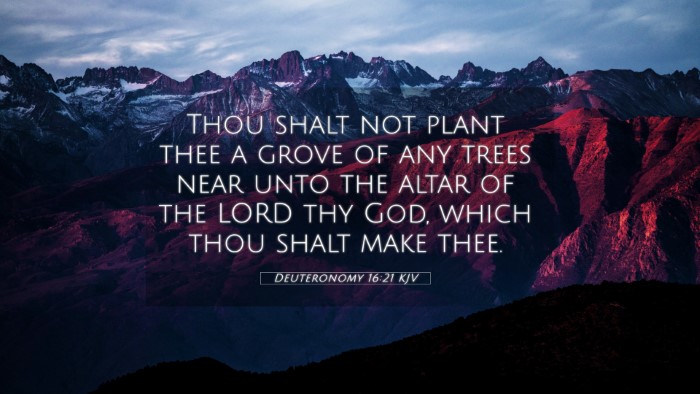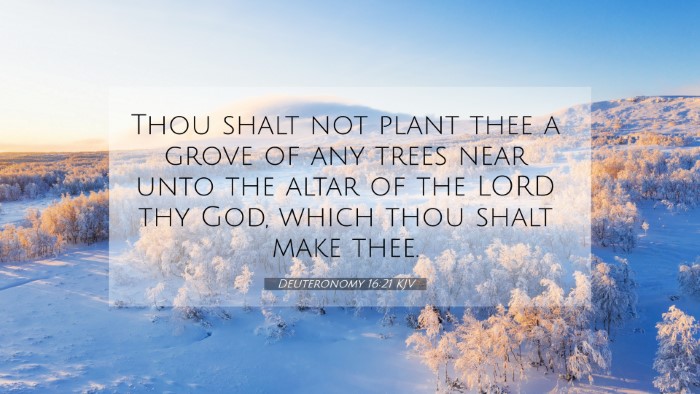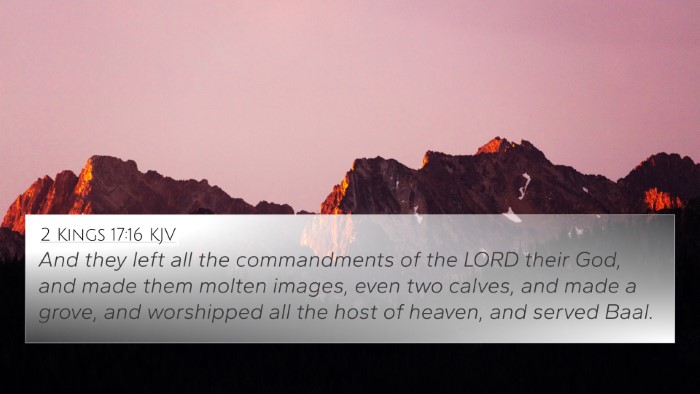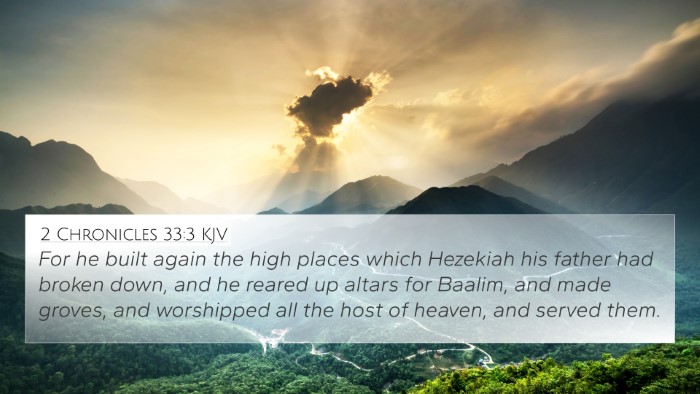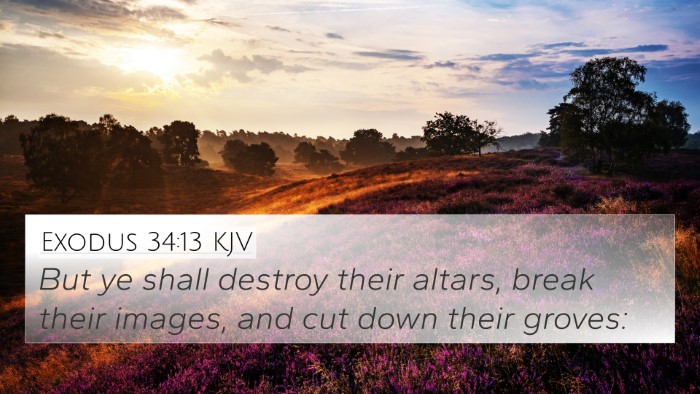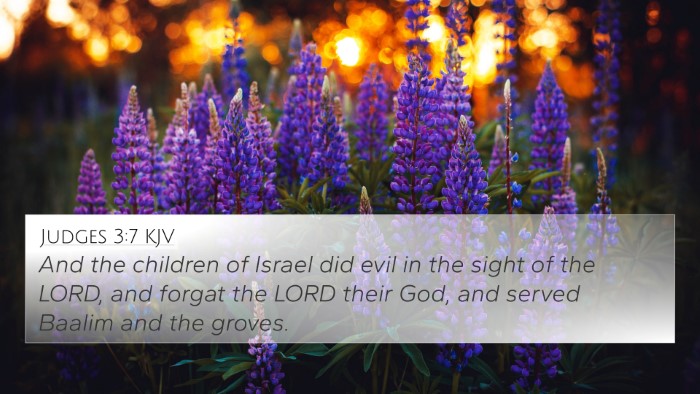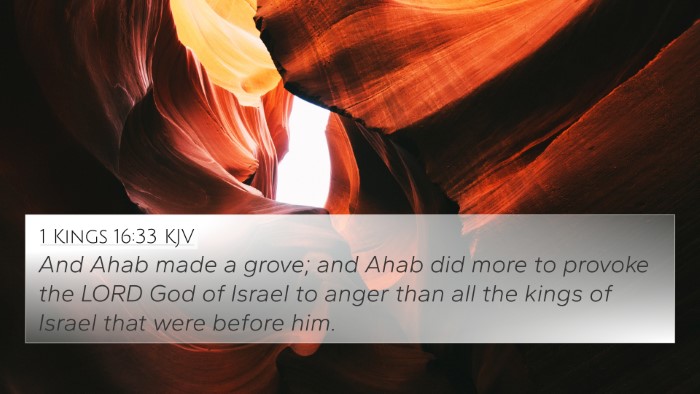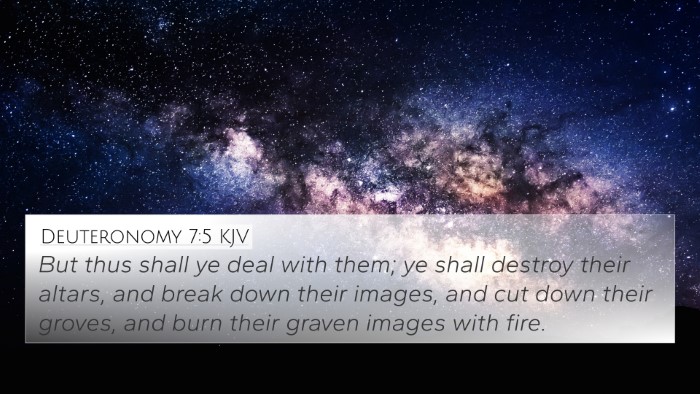Understanding Deuteronomy 16:21
Verse Reference: Deuteronomy 16:21 - "You shall not plant any tree as an Asherah beside the altar of the LORD your God that you shall make for yourself."
Overview and Context
This verse is part of the instructions given by Moses to the Israelites regarding proper worship and the establishment of the community's religious practices. It emphasizes the importance of maintaining purity in worship and avoiding idolatrous practices that could lead to corruption in the community's relationship with God.
Summarized Meaning from Public Domain Commentaries
-
Matthew Henry's Commentary:
Henry views this prohibition as a clear directive to avoid syncretism—combining the worship of Yahweh with pagan practices. The Asherah trees were associated with fertility rites and idol worship. Henry emphasizes that God's worship must be distinct and untainted by surrounding cultures.
-
Albert Barnes' Notes:
Barnes notes that the commandment reflects God’s desire for His people to separate themselves from the idols and practices of neighboring nations. The tree beside the altar symbolized a form of idolatry, indicating that the Israelites were to worship Yahweh in a manner prescribed by Him alone.
-
Adam Clarke's Commentary:
Clarke explains that planting an Asherah next to an altar could lead to temptation for the Israelites, leading them away from the true worship of God. He highlights the danger of mixing normal religious activities with practices that are offensive to God, thus compromising the sanctity of worship.
Thematic Connections
This verse raises significant themes regarding purity in worship and the consequences of idolatry.
It encourages a comparison with other texts relating to the prohibition of idolatry and the importance of worship according to divine instruction.
Relevant Cross-References
- Exodus 34:13 - "You shall tear down their altars and smash their sacred pillars and cut down their Asherim."
- Leviticus 26:1 - "You shall not make for yourselves idols, nor shall you set up for yourselves an image or a sacred pillar."
- Deuteronomy 12:3 - "And you shall destroy their altars, break their sacred pillars, and burn their wooden images with fire."
- 1 Kings 14:23 - "For they also built for themselves high places, sacred pillars, and asherim on every high hill and under every green tree."
- Jeremiah 2:27 - "Saying to a tree, 'You are my father,' and to a stone, 'You gave me birth.'"
- Isaiah 17:8 - "He will not look to the altars, the work of his hands, nor regard that which his fingers have made..."
- Hosea 4:13 - "They offer sacrifices on the tops of the mountains and burn incense on the hills."
Tools for Cross-Referencing
To study Deuteronomy 16:21 effectively, readers can utilize various tools for cross-referencing, including:
- Bible Concordance: A resource that lists words and where they appear in the Bible, useful for finding verses related to specific terms.
- Bible Cross-Reference Guide: A tool providing related verses that enhance understanding of particular passages.
- Comprehensive Bible Cross-Reference Materials: These materials help in exploring deeper connections between verses beyond immediate context.
Identifying Inter-Biblical Connections
Understanding Deuteronomy 16:21 involves identifying how it relates to other texts within the Bible, both in the Old and New Testaments. The themes of worship and idolatry discussed here resonate with prophetic warnings found in the later texts.
How to Find Cross-References in the Bible
To effectively find cross-references, readers should look for keywords, themes, and parallel teachings across different books. For example, comparing the warnings in Deuteronomy about idolatry with the exhortations in Galatians and Revelation can yield profound insights into the continuity of biblical messages about faithfulness to God.
Conclusion
In conclusion, Deuteronomy 16:21 serves as a significant reminder of the need for purity in worship and the dangers of allowing cultural practices to infiltrate spiritual life. This verse encourages ongoing examination of one’s practices and affections towards God, precisely aligning with themes found throughout both testaments of Scripture.
